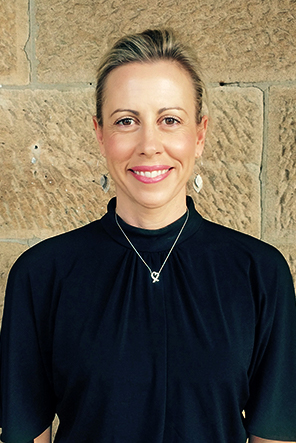A recent study by the Centre for Healthy Brain Ageing (CHeBA), the Dementia Centre for Collaborative Research (DCRC) and School of Public Health and Community Medicine at UNSW Sydney provides recommendations to improve underuse of formal community services by people with young onset dementia. Interviewees identified five aspects for ideal community services to improve future service design and delivery. The findings, which come from the INSPIRED study led by Dr Adrienne Withall and Professor Brian Draper were published in the July issue of the journal, PLOS ONE.
Lead author and PhD student, Ms Monica Cations said the research is timely since support for young onset dementia has recently been moved to the National Disability Insurance Scheme (NDIS).
“Until now, people with young onset dementia have not been supported by disability providers, who are likely to have limited knowledge about their needs,” said Ms Cations. “Our findings provide clear, practical guidelines for designing and delivering services tailored to people with this disease.”
Participants identified five aspects of an ideal service as being: unique, flexible, affordable, tailored, and promoting meaningful engagement.
Young onset dementia describes any type of onset of symptoms in people under the age of 65. Previous studies have shown that people with young onset dementia and their family carers significantly underuse formal community services, despite high levels of burden. Services include respite care, psychosocial support or psychoeducation (including education and support groups), allied health, and in-home care, which have the potential to considerably alleviate the burden on both people with the disease and their primary supporter.
Co-author and CHeBA Co-Director, Professor Henry Brodaty, said young onset dementia is associated with significant distress and burden on the affected person and on family supporters, including emotional and financial strain when work is reduced or prematurely ceased, compounded by balancing the competing care needs of young children and older parents.
“People with young onset dementia and their families report that formal community services and residential care facilities are primarily geared to an older population and do not meet their personal and psychological needs,” said Professor Brodaty.
The study interviewed 86 people with young onset dementia and 85 supporters. Participants with young onset dementia ranged from 35 to 64 years old at age of onset of the disease, with an average age of 55.3. Despite the majority of participants (96.8%) being recommended at least one community service, 66.7% chose not to use one or more of these. Key barriers included lack of perceived need, unavailability and young onset dementia-specific barriers, such as ineligibility, unaffordability, lack of security for young and physically agile participants, and lack of childcare. Accessibility to services varied widely. Many services are provided and subsidised via the aged care sector, for which people with young onset dementia may be ineligible or the type of services may be inappropriate. Many younger people living with dementia feel uncomfortable participating in age-inappropriate groups.
Professor Perminder Sachdev, CHeBA Co-Director and co-author, said the study is an important advance in improving the health care of individuals affected by young onset dementia and highlighted the role of future research.
“Service designers will benefit from ongoing research assessing program feasibility, suitability, and generalisability to diverse populations,” said Professor Sachdev. “Researchers can also improve cost-effectiveness through piloting studies, which are especially important in the context of a low prevalence disorder spread across a large geographical landscape.”
Ms Cations said that service providers should be encouraged to be creative when tailoring a service plan for young people with dementia, understanding their unique circumstances and desire to stay meaningfully engaged in their community.
Media contact: Heidi Douglass, Centre for Healthy Brain Ageing,
+61 2 9382 3398, 0435 579 202 | h.douglass@unsw.edu.au


